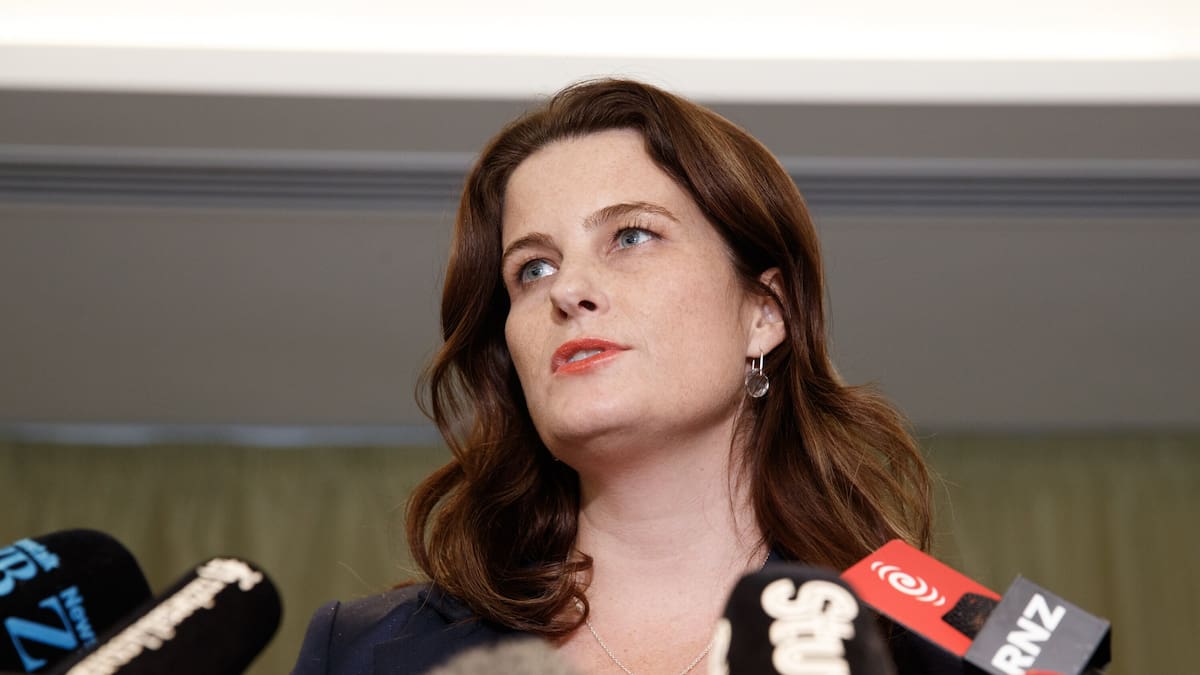One line says: “You and the Minister of Revenue commissioned Inland Revenue to review whether income tax settings are applying correctly to banks for potential consideration at Budget 2026.″
Following questions from the Herald, the Finance Minister said that as part of its work to address the cost of living, the Government “is taking action to ensure that New Zealanders are getting a fair deal from banking services”.
“Our work to enhance banking competition is wide-ranging and as part of this, I have sought advice on whether the major banks are paying their fair share of tax,” Willis said.
“I’ve been interested in how New Zealand’s bank tax regime compares with Australia and elsewhere, particularly in light of the significant profits Australian banks make from Kiwi customers.
“Tax policy is highly technical, so I can confirm that Inland Revenue is giving consideration to a wide range of options.”

No decisions have been made, nor have recommendations been taken to Cabinet, Willis said, so she would not comment on specific proposals at this stage.
“It is likely any potential tax policy changes affecting the banking sector would be considered by Cabinet as part of Budget 2026.”
A similar document, given to the minister the following week on March 24, has an identical list of policies and workstreams, with small updates.
However, the part which contained the information about tax settings for banks in the March 18 paper was redacted in this subsequent document.
It was withheld to “protect the confidentiality of advice tendered by ministers of the Crown and officials”.
The Herald asked Willis if the March 18 information was meant to be released. Her response did not directly address this question, but she did say “advice I receive on these matters remains under active consideration and is likely to remain confidential until final decisions are made”.
Inland Revenue said it looked at “a variety of income tax settings generally, to try to determine whether banks are being appropriately taxed overall”. It said work remained under way and no decisions have been made.

A myriad of options
The Government has frequently said it wants to promote competition in the banking sector.
Last year, the Finance and Expenditure Select Committee launched an inquiry into competition in the banking sector, following a request from Willis. It held public hearings with the banks, including on their profitability compared with those overseas, throughout 2024 and early this year, with a report still pending.
As the Finance Minister said, tax policy is complex. While most working New Zealanders will understand headline rates, such as how much tax they pay on their salary or the corporate tax rate, there is a multitude of settings in the depths of the system.
The Income Tax Act, which governs the rules for how tax is imposed when relating to different types of income, is almost 4000 pages long. It covers everything from PAYE (pay as you earn) to Australian wine producer rebates.
Banks, as a recent Herald investigation showed, make considerable profits and are among New Zealand’s largest taxpayers, even though the major ones are Australian-owned.
ANZ, BNZ, ASB and Westpac collectively paid more than $2 billion on average in annual tax over the past two years.
That is a significant slice of New Zealand’s overall corporate tax take, which was $16.9b in the year to June 30, 2024. Corporate tax follows source deductions (PAYE) and Goods and Services Tax (GST) as the biggest contributor to overall tax revenue.

Over recent years, a number of ideas have been floated that could impact the tax paid by banks.
However, any options should be considered with the political lens the coalition Government would apply to them – especially so close to what is currently expected to be a close election.
A windfall tax – taxing excess profits – was an idea frequently spouted out a couple years ago, including by the Greens, when high profits were in the spotlight amid favourable conditions for the banks.
The then Labour Government considered such a tax, but abandoned the idea when officials advised it could risk confidence in the system and the burden may be borne by bank customers.
Cutting the corporate tax rate has been a measure mooted to drive competition, although, unless there’s a sector-specific carveout, this wouldn’t just impact the banks, which Willis has made clear are the focus of this work.
Willis said in February that New Zealand’s 28% corporate tax rate “does invite consideration” as the Government looked to ramp up economic growth.
However, the minister also indicated she was interested in looking at the “tax rules that sit underneath” the headline rate, so more technical changes to settings could be preferred.
Ahead of this year’s Budget, the Government did receive advice on cutting the company tax rate from 28% to 23%.
Officials found it would cost about $10.8b over the forecast period and tax avoidance issues would arise from a larger gap between the company tax rate and personal tax rates. Ministers ultimately opted to progress the Investment Boost tax deduction policy.
Banks will pay levies to help fund the new Depositor Compensation Scheme, which came into effect just last week after years of development.
This scheme, administered by the Reserve Bank, insures deposits of up to $100,000 per person, per institution, at banks, building societies, credit unions and finance companies. It’s intended to protect Kiwis’ money in the event one of these institutions collapses.
In 2017, the Australian Government introduced a “Major Bank Levy” on authorised deposit-taking institutions with total liabilities of more than A$100b ($108b). The Treasurer at the time, Scott Morrison, said it was a “fair contribution” that would “even up the playing field with smaller banks”.
Jamie Ensor is a political reporter in the NZ Herald press gallery team based at Parliament. He was previously a TV reporter and digital producer in the Newshub press gallery office. In 2025, he was a finalist for Political Journalist of the Year at the Voyager Media Awards.







